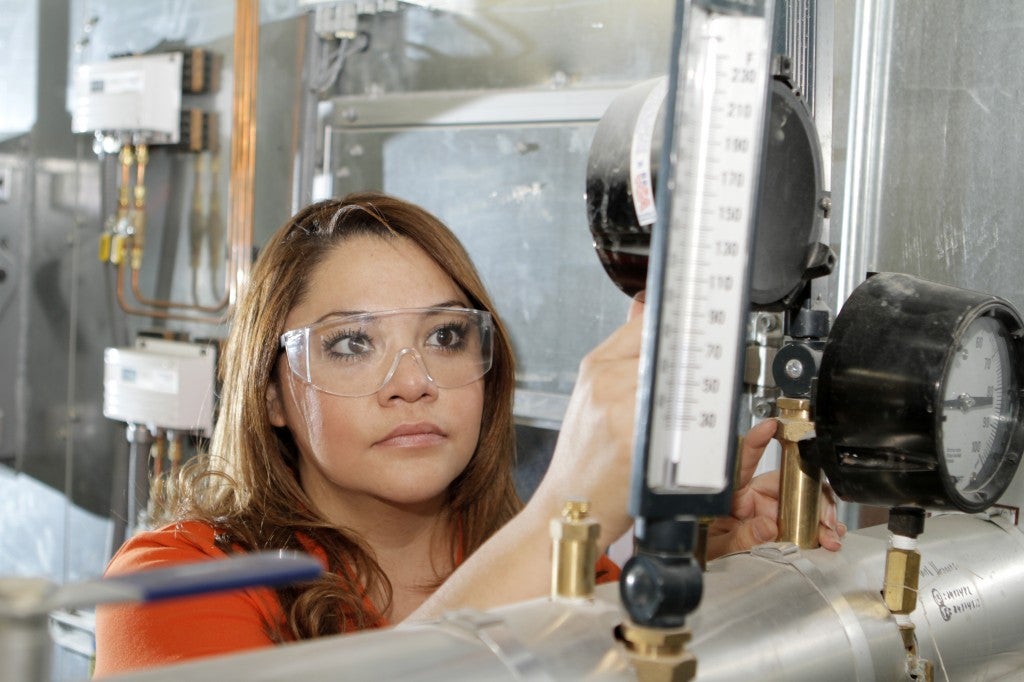
EDF Climate Corps fellow Olivia Moreno uncovers ways to increase energy efficiency at University of Texas at El Paso.
It’s no secret that minorities are underrepresented in the energy field.
In the United States, Hispanics, African Americans, and American Indians make up 24 percent of the overall workforce, yet only account for nine percent of the country’s science and engineering workforce.
An initiative called Minorities in Energy (MIE) aims to change those numbers. It is creating a sustainable model that identifies diverse stakeholders to address challenges and opportunities for underrepresented communities in the growing energy economy, STEM (science, technology, engineering, and mathematics) education, and climate change.
Launched a year ago by the U.S. Department of Energy, MIE has built an impressive list of ambassadors and partnerships. Energy Secretary Ernest J. Moniz puts it this way:
“We can only be successful in achieving our energy goals if we are inclusive of America’s diverse communities.”
So true. MIE has developed a solid plan to close the “participation gap” of minorities in the energy sector. Strategies include:
- Encourage greater participation of minority-owned businesses and workers in the energy sector.
- Educate underrepresented communities about the benefits of energy efficiency.
- Engage communities on climate change mitigation and resilience.
One of the first steps is to get more minorities involved in STEM education and workforce training programs. By 2018, STEM job creation is projected to grow by 17 percent, compared to 9.8 percent for non-stem positions.[Tweet “The energy sector is one of the fastest growing in the country, and this program aims to increase its #diversity: http://ow.ly/G3E6B “]
The energy sector is one of the fastest growing in the country. STEM education is critical to the development of clean energy jobs and overall energy production, encouraging innovation, and maintaining a global competitive edge.
Spreading the word is a committed network of ambassadors who champion STEM education and inclusion of minorities in the energy sector. Industry partners include Lockheed Martin, BP, and Shell.
Without diversity of people who actively engage in the energy economy, our nation will lack a diversity of thought, missing the right people at the table to address challenges, ask questions, and expand our knowledge in energy fields.”
— Minorities in Energy website
Plain, old-fashioned public education and engagement is a priority for MIE. Minority, tribal, and low-income communities are disproportionately impacted by climate change. These communities need greater access to information to help inform ideas about climate policies and courses of action.
It is important to have programs that encourage diverse representation because there is strength in embracing our differences and learning from each other. I believe the Minorities in Energy initiative will increase minority participation in the energy sector – but change does not happen overnight. It takes time.
In the months ahead, I look forward to finding ways to partner with this initiative and help close the “participation gap” to increase minorities in energy.









